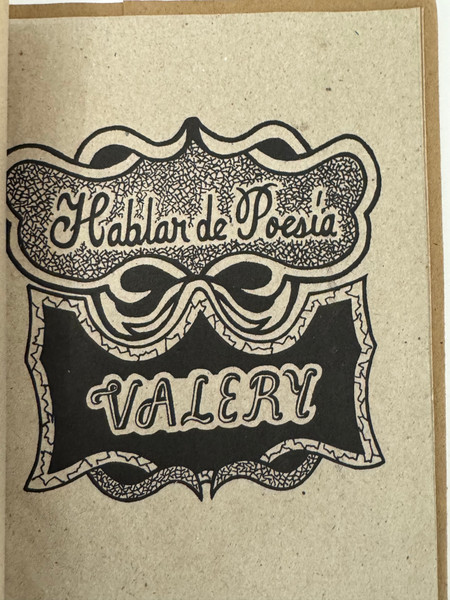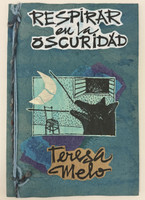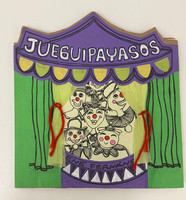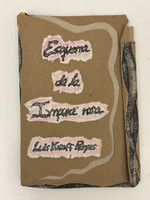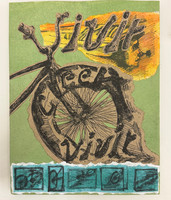- Travel
-
Exhibits
- José Fuster
- La Portada Cubana
- Immortal Cuba: Artists Take on Their Heroes
- Seattle Poster Exhibit
- Sandra Dooley & Alejandrina Cué
- The Art of Wayacón
- Cuban Folk Art
- Cuba In Black And White
- 25 Years of Cuban Art Space
- Summer Folk Art Expo
- ¡SPRING AWAKENING FROM CUBA!
- Celebrating The Art Of Cuban Women
- Celebrating Paper, Affordable Art from Cuba
- Art of the Revolution
- Outsider Art
- Lost and Found
- En la lucha: Celebrating Cuban Women and Their Art
- Cuban Art Stash
- 100 Fires: 5 Cienfuegos Artists' Work on Paper
- Waya + Monte! Magic Realism in Cienfuegos
- Viva Cuba Viva! Poster Show
- Cultivando Sueños
- Black Lives Matter in Cuba Jan 9-March 27
- Leandro Soto: Crónicas visuales
- Cuban Canvas
-
Archive
- Global Reflection 2018: Spirit and Community
- Exhibit in the cloud: Contemporary Works on Paper
- MADE IN CUBA! MINNEAPOLIS EXHIBIT
- Cuban Posters and Photography from CCS collection
- AUTUMN SALE! Sept/Oct 2017
- SPRING ARTS AND CRAFT SALE
- Vuelo Directo/Non Stop: Alberto & Alejandro Lescay
- The Many Faces of Fidel
- Somos
- Made in Cuba!
- The US empire in Cuban graphics
- Made in Cuba/Seattle exhibit
- Entre Nos
- Looking Back
- Cuban Art Space
- Membership/Donate
- About Us
- Cuba News
-
Marialva Ríos's cover design for this Paul Valéry poetry collection employs ornate baroque ornamentation that evokes both French decorative traditions and the elaborate frames of 19th-century book arts. The composition features two stacked decorative cartouches rendered in black ink on kraft paper using meticulous stippling and line work to create dimensional borders. The upper frame, filled with dense stippled texture, contains the series title "Hablar de Poesía" in elegant script lettering. Below, connected by a decorative bow, a second cartouche presents "VALERY" in bold outlined letters against a solid black ground with elaborate lace-like borders. The ornamental frames suggest curtained theater stages or ceremonial announcements, lending gravitas appropriate to the celebrated French symbolist poet. The back cover features a woodcut-style illustration of Les Invalides dome in Paris, anchoring the book's connection to French literary tradition.
Published in June 2004 to commemorate Ediciones Vigía's twentieth anniversary, this edition marks a milestone for the legendary Matanzas press. The "Hablar de Poesía" series—part of the broader "Colección Clásicos"—gathered important translations of exquisite titles from universal poetry, presenting significant poems from French literature in bilingual editions. This volume emerged from a cycle of lectures on Paul Valéry delivered by René Suárez Seva, who also compiled the selections and annotations. The 200 hand-manufactured and illuminated copies used recycled and industrial papers of diverse colors, textures, and weights.
Paul Valéry (1871-1945) was one of the most important French poets and intellectuals of the early 20th century, known for his symbolist poetry and philosophical prose. His selection for this anniversary publication reflects Ediciones Vigía's commitment to making world literature accessible despite economic constraints. The production team—Estela Ación, Ibis Arias Rosales, Iosmey Barbier, Ana María Coro, Álida Fernández, José R. Guevara, Leticia Hernández Benítez, Lissette Martínez, Gladys Mederos, Agustina Ponce, Maricel Ruiz, Laura Ruiz, and Abilia Tellería—transformed scarcity into celebration, creating an object that honors both Valéry's poetic legacy and Vigía's two decades of artisanal bookmaking that had made poetry tangible, accessible, and beautiful during Cuba's most challenging economic period.
-
-
Discover More at the Center for Cuban Studies

